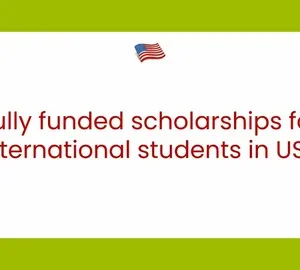Zakat & Sadaqat Scholarships in Nigeria: How to Qualify, Avoid Rejection & Keep Your Funding Renewable
If you’re a Nigerian student wondering whether faith‑based funding can actually pay your school fees on time, and keep paying year after year, you’re not alone. Zakat and Sadaqat programmes are quietly underwriting tuition, exam fees, vocational training, and even seed capital for students across Nigeria. Yet many applications fail for avoidable reasons: unclear eligibility, poor documentation, missed deadlines, or policies that students never take time to understand.
This guide breaks everything down—what Zakat and Sadaqat scholarships are, who qualifies, how to apply without stress, the red flags that cause rejection, and the exact steps to keep your funding renewable. Expect practical checklists, examples you can copy, and a clean plan you can follow this semester.
Quick note on links: I’ve included just two external links in the body of this article to keep things focused and credible. They point to recent, reputable coverage of major Nigerian Zakat organisations so you can see how active these programmes are in practice: the long‑running impact of the Zakat & Sadaqat Foundation and the scale of Jaiz Charity & Development Foundation distributions. Use them as springboards for deeper research when you’re ready.
What Are Zakat & Sadaqat Scholarships—And Why Do They Matter?

Zakat is an obligatory charitable levy in Islam—commonly 2.5% of qualifying wealth—that must be distributed to eligible categories of beneficiaries (for example, the poor, the indigent, those in debt, and others specified in classical jurisprudence). Sadaqat (Sadaqah), by contrast, is voluntary charity. In contemporary Nigeria, both forms are channelled through:
-
Faith‑based foundations (e.g., Zakat & Sadaqat Foundation; Jaiz Charity & Development Foundation),
-
State or community Zakat committees (e.g., at emirates or Muslim community councils),
-
Mosques and Islamic societies (including alumni associations of Muslim students),
-
University‑linked bursaries created by Muslim networks or philanthropists,
-
Private donors running transparent, small‑scale assistance through registered NGOs.
When these institutions earmark funds for education, we typically call them Zakat/Sadaqat scholarships—even though they may also cover medical bills, working tools for artisans, or micro‑capital to start a small venture.
Why this matters right now: Economic pressure has pushed more families to seek faith‑aligned support. The good news is that many Zakat organisations have improved their screening, monitoring, and reporting—making it more likely that serious students who meet the criteria will be funded, and funded again next year.
-
The Zakat & Sadaqat Foundation recently marked 25 years and disclosed multi‑billion‑naira cumulative disbursements to tens of thousands of beneficiaries—evidence that these programmes are entrenched, structured, and active across Nigeria. Read the coverage here: Zakat & Sadaqat Foundation disburses N2.3bn in 25 years.
-
Jaiz Charity & Development Foundation also reports consistent, multi‑state distributions running into hundreds of millions of naira, including dedicated education support and tools for economic empowerment. See the report here: Jaiz Foundation says it disbursed over N500m to 10,389 beneficiaries in 8 years.
These aren’t one‑off announcements—they’re snapshots of an ecosystem you can plug into with the right preparation.
Zakat vs. Sadaqat—The Student’s View (Plain English)
Zakat funding tends to come with stricter eligibility and documentation because it is a compulsory religious obligation subject to rules about who can receive. Sadaqat funding is more flexible because it is voluntary, but serious organisations still apply screening to prevent misuse and to ensure impact.
What that means for you:
-
Zakat may prioritize the needy and indigent—for education this often includes orphans, students from families below a defined income threshold, or those with urgent tuition arrears.
-
Sadaqat can support a wider pool: students facing temporary hardship, those needing exam fees, or assistance with apprenticeship/short courses.
The trick is to apply where your profile fits—and to prove it with clean documentation.
How to Know If You Qualify (Before You Spend a Minute on Forms)
Most Nigerian Zakat/Sadaqat scholarship programmes look for variations of the following:
-
Clear evidence of need
-
Family income level (salary slips, market stall records, simple affidavits where formal payslips don’t exist).
-
Tuition invoice or fee breakdown from your school.
-
Any debt notices from the bursary or faculty.
-
-
You’re within the eligible categories
-
For Zakat, ensure your situation falls under recognized beneficiary categories (e.g., poor/needy, indebted for legitimate reasons, students lacking financial support).
-
Some programmes target specific groups—orphans, people with disabilities, widows’ children, or IDPs.
-
-
Academic seriousness
-
Current enrollment (admission letter, valid student ID, course registration slip).
-
Evidence of progress (transcripts, CGPA printout, WAEC/NECO results for new entrants).
-
Good conduct record (no disciplinary issues).
-
-
Community verification
-
Letter from your Imam, community leader, or school authority confirming your situation.
-
A guarantor/referee who is reachable and reputable.
-
-
Fit with programme focus
-
Some funds prioritise STEM/Vocations (for employability), or health‑related needs (surgical fees), or tools (laptop, sewing machine).
-
Read current priorities and align your request accordingly.
-
Rule of thumb: If you can show need, prove enrollment, demonstrate progress, and secure community verification, you’re already in the top tier of applicants.
The “No‑Stress” Application Checklist (Copy This)
Before you start any application form, assemble a single digital folder (Google Drive/OneDrive/USB) with:
-
Identity
-
National ID, international passport, or voter’s card (clear scans).
-
Local government of origin certificate (if required).
-
-
Academic
-
Admission letter + current session course registration slip.
-
Most recent semester transcript/CGPA slip.
-
WAEC/NECO or JAMB (for undergraduates).
-
Supervisor/department letter (for final‑year projects or postgraduate research).
-
-
Financial need
-
Official tuition invoice with bank details and due dates.
-
Hostel/acceptance fee breakdown (if you’re asking for more than tuition).
-
Short household income summary (father/mother/guardian sources).
-
Proof of debt or arrears (if applicable).
-
-
Community verification
-
Letter from your Imam or recognised community leader (with phone number, stamp if available).
-
Letter from Head of Department/Dean or school bursar verifying your status and fees.
-
-
Supporting pieces
-
1–2 passport photographs (soft copy + hard copy).
-
Short personal statement (see below for a winning template).
-
Guarantor data: full name, occupation, address, valid phone numbers, and signed commitment.
-
-
Format & naming
-
Save everything as PDF where possible.
-
Use clean file names:
Surname_Firstname_DocumentType_YYYY.pdf(e.g.,Ola‑Aminu_Maryam_TuitionInvoice_2025.pdf).
-
Having this pack ready reduces back‑and‑forth and signals seriousness—a factor committees quietly note.
Common Reasons Applications Get Rejected (and Exactly How to Fix Them)
-
Unclear need, fuzzy numbers
-
Fix: Attach a valid tuition invoice, even if your school prints it from a portal. Show exact amount due, due date, and bank details. If you’re asking for hostel or lab fees, include official breakdowns.
-
-
Missing community verification
-
Fix: Request a letter from an Imam on mosque letterhead with contact details. If your Imam doesn’t have letterhead, add a phone number and national ID photocopy. Pair it with a department letter for credibility.
-
-
Name mismatches (e.g., “Abdullahi Bala” vs “Abdullahi M. Bala”)
-
Fix: Ensure consistency across NIN, school records, invoices, bank account, and letters. If you have variations, include a sworn affidavit explaining them.
-
-
CGPA concerns
-
Fix: If your grades dipped, address it proactively in your statement: short illness, family crisis, or increased workload—then show how you’ve improved (timetable, tutoring, study group). Attach any evidence (doctor’s note, counselor letter).
-
-
Late submissions
-
Fix: Build a deadline calendar (see planning section below) and apply early. Zakat committees process in cycles; early birds often get seats before funds are exhausted.
-
-
Over‑ask without rationale
-
Fix: Prioritize tuition first, then specific verified costs (e.g., professional exam fee). When you’re precise, committees trust you more.
-
-
Poorly written statements
-
Fix: Use the statement template below; keep it tight, factual, and values‑aligned.
-
A Statement That Works (Template You Can Adapt)
Intro (2–3 lines):
My name is [Full Name], a [Year/Level] student of [Department, University]. I am applying for Zakat/Sadaqat educational support to cover [exact fees] due on [date].Need (3–5 lines):
My family income is [N…/month] from [guardian/parent job]. Due to [brief reason—job loss/health/price hikes], we cannot meet this semester’s tuition of [N…]. I attach the official invoice and my department letter.Merit/Progress (3–4 lines):
My current CGPA is [X.XX]. I have completed [number] credits and am on track to graduate in [month/year]. I’m also involved in [1–2 relevant activities—lab assistant, coding club, tutoring].Values & Community (2–3 lines):
I volunteer at [mosque/NGO] supporting [activity], and I mentor [number] junior students weekly. If supported, I commit to maintaining [target CGPA] and submitting progress reports.Close (1–2 lines):
Thank you for considering my application. I can be reached on [phone]. My Imam [Name, Mosque] and HOD [Name] have attached verification letters.
Keep it on one page. If the portal has a character limit, compress the same ideas into shorter sentences.
The Smart Student’s Timeline (30‑Day Action Plan)
Day 1–3: Prep your document pack (IDs, invoice, transcripts, letters).
Day 4–6: Meet your Imam & HOD—collect verification letters and signatures.
Day 7–10: Draft your statement and get a friend to proofread it.
Day 11–15: Apply to 3–5 relevant programmes (see table below).
Day 16–20: Follow up once (politely) with missing documents if requested.
Day 21–30: Prepare for possible interview/verification (see tips later), and keep your phone on. If unsuccessful, request feedback and refine.
This rhythm prevents deadline panic and telegraphs reliability.
Quick Comparison Table: Where Nigerian Students Typically Find Zakat/Sadaqat Support
The entries below are indicative—not official policy. Always read each programme’s current guidelines.
| Funding Channel | Typical Focus | Who Often Qualifies | Core Documents | Disbursement Pattern | Renewal Chance | Risks to Watch |
|---|---|---|---|---|---|---|
| National/Regional Zakat Foundations (e.g., Zakat & Sadaqat Foundation) | Tuition aid, medical support, tools for artisans, seed capital | Students with verified need, orphans, indigent families | ID, tuition invoice, transcripts, Imam + school letters | Bank transfer to school or beneficiary; sometimes ceremonies | Medium–High if progress is proven | Late application; incomplete verification |
| Jaiz Charity & Development Foundation | Education support, empowerment tools, health interventions | Low‑income students, widows’ children, disabled students | As above + guarantor | Often batch distributions; sometimes direct to school | Medium with strong reporting | Over‑ask; weak CGPA justification |
| State/Community Zakat Committees (e.g., at emirates or councils) | Local tuition aid, exam fees, emergency relief | Residents of the community with need | Proof of residency, Imam letter | Localised, smaller tranches | Medium if active in community | Eligibility tied to locality |
| Mosques/Islamic Societies/Alumni | Small bursaries, exam fees, laptops | Active mosque members, society alumni | Imam letter, school docs | Direct to beneficiary; quick turnaround | Low–Medium; depends on funding pool | Informal processes; record‑keeping varies |
| University Muslim Associations (registered) | Fee top‑ups, food stipends, one‑off grants | Students in campus chapter | Student ID, invoice | In‑semester emergency disbursements | Low (often one‑off) | Small budgets; inconsistent cycles |
Five Real‑World Scenarios (And How to Pitch Your Case)
-
Final‑Year Student with Outstanding Tuition of N150,000
-
Pitch: “My transcript shows I’ve completed 85% of credits; here’s the bursary invoice due in four weeks. I need only tuition—the rest I can cover via part‑time tutoring.”
-
Why it works: Specific, time‑bound, and low‑risk for funders.
-
-
ND Holder Seeking HND Upgrade with Low Family Income
-
Pitch: “Here’s my ND transcript and admission letter for HND. I’ve secured hostel; I’m asking only for tuition. My Imam and HOD letters are attached.”
-
Why it works: Demonstrates planning and realistic ask.
-
-
Apprentice Who Needs Tools (Sewing Machine/Laptop) + Short Course Fee
-
Pitch: “I’m registered in a 6‑month course; here’s the fee invoice and quote for a starter machine. I’ve lined up two clients. I’ll submit monthly progress reports.”
-
Why it works: Outcome‑oriented; links aid to income generation.
-
-
Orphan with Excellent WAEC Results but No Sponsor
-
Pitch: “I have a university offer (letter attached) and top grades. The local Imam confirms my status; I seek first‑year tuition and a book grant.”
-
Why it works: Clear need + high potential impact.
-
-
Student with CGPA Dip due to Illness
-
Pitch: “My CGPA dropped to 2.7 last semester due to malaria. Doctor’s note attached. I’ve joined a study group and reduced shifts. My plan targets 3.3 next semester.”
-
Why it works: Honest, documented explanation + recovery plan.
-
How to Avoid Rejection: The “Seven‑Point Clean File” Method
-
Start with the invoice (official, legible, current session).
-
Match all names across NIN, school records, bank, and letters.
-
Bind your file—soft copy folder + a printed pack in a clear plastic wallet.
-
Use one phone number across all documents; keep it reachable from 8am–6pm.
-
Reference a real person at your department (HOD, programme officer).
-
Keep your ask simple—tuition first; itemize any extras.
-
Send a 2‑line follow‑up one week after submission (polite; no spam).
Interview & Verification: What Committees Listen For
-
Consistency: Do your spoken answers match your documents?
-
Clarity of need: Can you describe your financial gap in one sentence?
-
Plan for success: How will this funding change your semester outcome?
-
Values & conduct: Any disciplinary issues? Do you contribute to community life?
-
Communication: Do you pick calls, reply messages, and show up on time?
Sample questions you may be asked:
-
“Who pays your rent/feeding now—and how much?”
-
“What is your CGPA and how are you improving it?”
-
“If we fund you this year, what will you do differently to avoid future arrears?”
-
“Do you receive any other scholarships?” (Be honest. Many programmes allow “stacking” if it avoids duplication.)
Renewal 101: How to Keep Funding Year After Year
1) Understand the renewal policy early
Some foundations renew automatically if you meet milestones; others require a fresh application. Ask about:
-
Minimum CGPA or pass mark per session,
-
Attendance or conduct expectations,
-
Progress reports (one‑page semester summary is often enough),
-
Volunteer/service participation (some prefer recipients to mentor juniors).
2) Track your commitments
Create a simple Renewal Tracker:
-
Milestone: “Submit semester transcript by Aug 15” → Status: Done
-
Milestone: “Volunteer 10 hours with campus tutoring” → Status: 12 hours completed
-
Milestone: “Send thank‑you letter + impact note” → Status: Sent July 30
3) Keep your grades up (or be transparent if they dip)
If you drop below threshold, explain early: provide context and a recovery plan (timetable, study group, fewer shifts). Silence looks like negligence.
4) Send a one‑page impact note
At session end, summarise: “With Nxxx paid on [date], I completed [x] credits, improved CGPA from [a] to [b], and mentored [y] students.” Attach proof (transcript, photos of mentoring log if relevant).
5) Stay reachable
Update your phone/email if they change. Many renewals are lost because committees simply can’t reach the student.
Ethical Stacking (Without Violating Rules or Values)
It’s acceptable to combine support if each fund covers different needs (e.g., Zakat foundation pays tuition; a mosque committee buys textbooks; an alumni group funds exam registration). What you must never do is:
-
Claim the same expense twice,
-
Hide other funding if a programme explicitly asks,
-
Charge penalty interest or agree to clauses that breach Sharia principles.
When in doubt, disclose. Foundations appreciate honesty and will often re‑assign your request (e.g., pay only what’s unfunded).
Red Flags & Scams to Avoid (Protect Yourself)
-
Upfront “processing fees” demanded in cash or through personal accounts. Legitimate foundations use official receipts and bank accounts.
-
No physical address or traceable leadership. Look for CAC registration, a known office, or public events/press releases.
-
“Guaranteed awards” via agents on social media. No credible scholarship is guaranteed.
-
Rushed deadlines with pressure tactics (“pay today or lose your slot”).
-
Shaky paperwork—misspelt names, unverifiable stamps, or unverifiable phone numbers.
What to do: Verify through official websites/socials, attend their open events when possible, and ask past beneficiaries for references. If anything feels off, walk away.
Special Tips for Women, Orphans, and Students with Disabilities
-
Women: Some programmes quietly prioritise widows and their children, as well as women in vocational training. If safety or childcare affects your studies, state it plainly and request specific accommodations (e.g., “hostel fee to avoid late‑night commutes”).
-
Orphans: Provide a death certificate (if available) or an Imam/community leader’s letter confirming status. Attach your admission letter and a succinct budget.
-
Students with Disabilities: Request assistive tools (screen readers, hearing devices) and connect the request to academic outcomes (e.g., “Will enable me to complete lab practicals and exams”).
Budgeting Your Ask (So You’re Easy to Fund)
Create a simple, itemised budget with three columns:
-
Cost item (Tuition, Hostel, Textbooks, Exam Fee),
-
Amount (₦) (with supporting invoice/quote),
-
Who pays (Self/Guardian, Zakat Foundation, Mosque Committee).
Then add a final line: “Total unfunded gap = ₦…”—this is your request. Funders love clarity.
Monitoring & Reporting—How to Be the Student Committees Talk About
-
Monthly study log (10‑minute Sunday habit).
-
Volunteer hours (photo proof where appropriate).
-
Receipt folder (screenshots of fee payments, exam registrations).
-
Airtight communication (respond within 24 hours; be polite and concise).
At semester end, send a thank‑you + impact note with attachments. This single step raises your renewal odds dramatically.
FAQs (Short, Honest Answers)
Q: Can I apply to multiple Zakat organisations in the same semester?
A: Yes—if you are transparent and not double‑claiming the same expense. Prioritise tuition; show each funder what remains unfunded.
Q: My CGPA is low. Will I be rejected?
A: Not automatically. Explain the dip, show a recovery plan, and request only what you need. Some funds are more flexible with Sadaqat‑based support.
Q: Do I have to be a “perfect” Muslim to qualify?
A: Programmes look for need, honesty, and effort—not perfection. Conduct matters because it reflects how you’ll represent the fund.
Q: Can Zakat funds buy a laptop?
A: Often yes when linked to academic progress or vocational training. You’ll need a quote/invoice and a short rationale.
Q: What if my Imam is in another city?
A: Provide his letter, but try to add a local verification (HOD, community leader near your campus) for quicker checks.
Two Real Examples of Scale (For Your Confidence)
-
The Zakat & Sadaqat Foundation has supported tens of thousands of beneficiaries over a quarter‑century, with cumulative disbursements running into billions of naira—a sign of robust systems and reach: recent coverage here.
-
Jaiz Charity & Development Foundation reports hundreds of millions of naira disbursed across multiple years to thousands of beneficiaries, including education support and empowerment tools—proof that annual cycles are real, not rhetoric: news report here.
Use these as proof points when your parents, guardians, or referees worry whether it’s “worth it” to help you collect letters and forms. It is.
Your 12‑Step Action Plan (Bookmark This)
-
Map your gap (exact naira figure and due dates).
-
Assemble your pack (IDs, invoice, transcripts).
-
Secure two letters (Imam + HOD).
-
Draft a one‑page statement (need + progress + plan).
-
Pick 3–5 programmes that fit your profile.
-
Submit early (don’t wait for final week).
-
Answer calls and keep soft copies ready to resend.
-
Prepare for interview (practise 30‑second answers).
-
Receive funds—send receipt/acknowledgment promptly.
-
Study/volunteer/report (brief monthly notes).
-
Send an impact note with transcript and photos.
-
Apply for renewal (or new cycle) with confidence.
A Word on Dignity and Intention
Seeking help through Zakat or Sadaqat is not a weakness; it’s part of a social covenant designed to keep communities upright. Your responsibility is to be truthful, organised, and grateful—showing in your conduct that the trust placed in you was well deserved. When you graduate or secure a job, consider paying it forward—even with small, regular Sadaqat—to keep the circle unbroken.
Conclusion: Clarity, Consistency, Character
If you remember nothing else, remember this three‑C formula:
-
Clarity: Be exact about what you need, when you need it, and why.
-
Consistency: Make your documents match; keep your phone on; meet deadlines.
-
Character: Own your story, serve your community, and respect the process.
That’s how you qualify, avoid rejection, and keep your funding renewable—not by luck, but by design. And if you start today, you’ll be surprised how quickly doors open.
Call to Action
- Visit the Lagos State Zakat and Sadaqat Board portal for application updates and deadlines.
-
Share this guide with friends and community members who need it.
Further reading for context and confidence:




